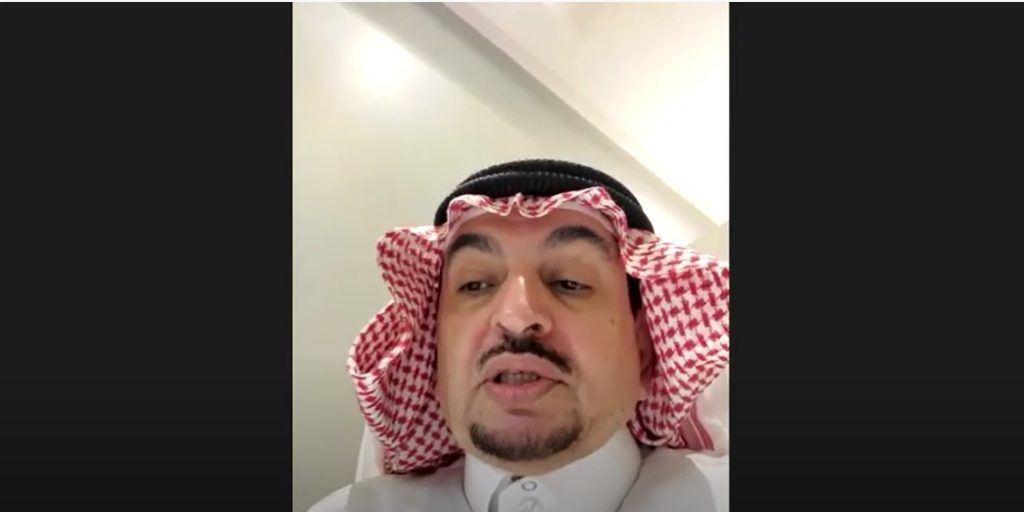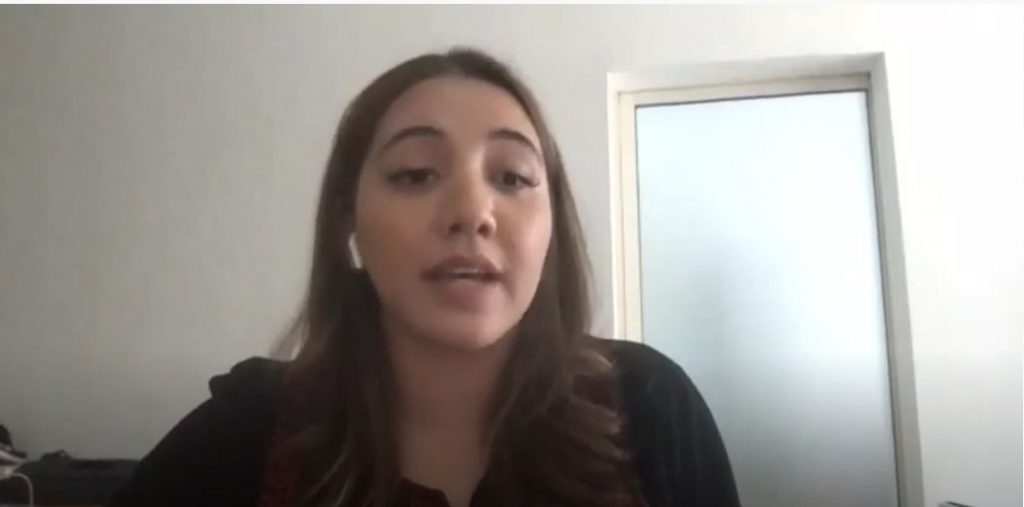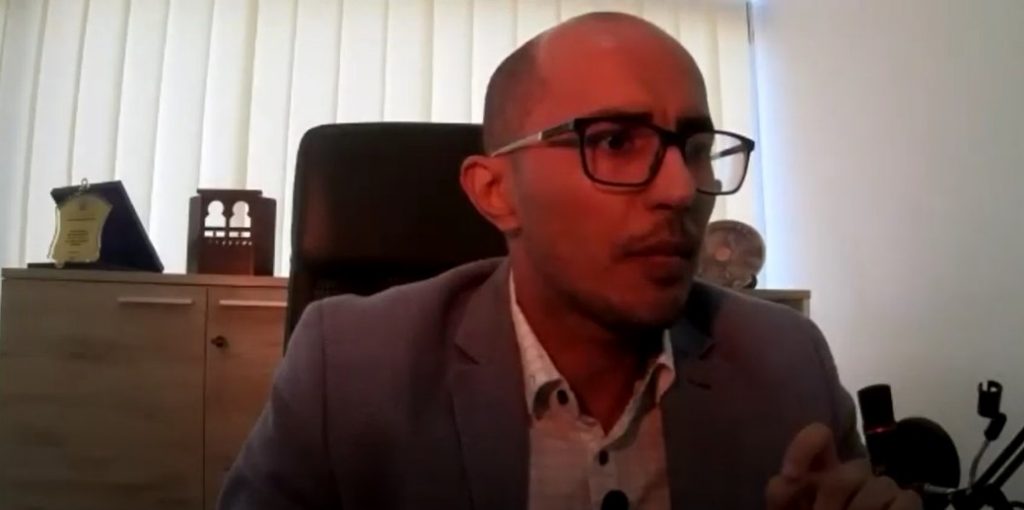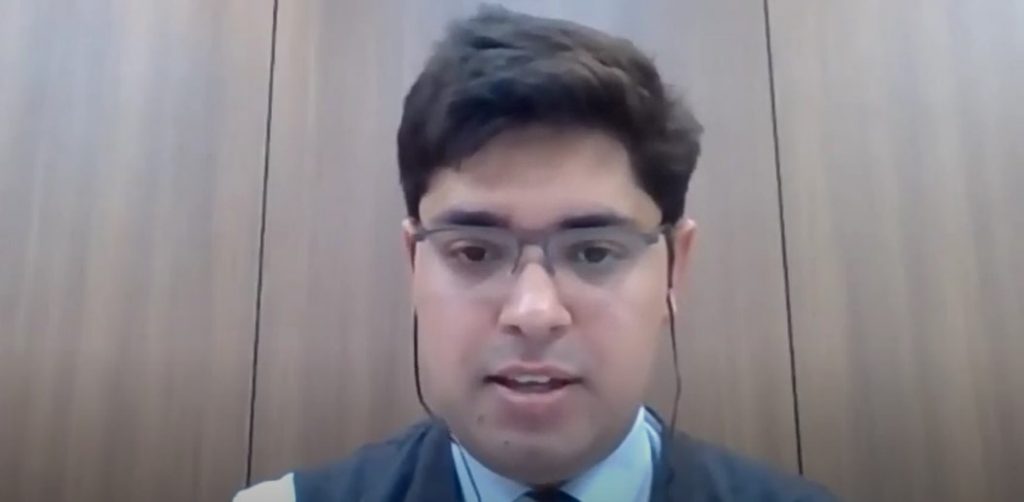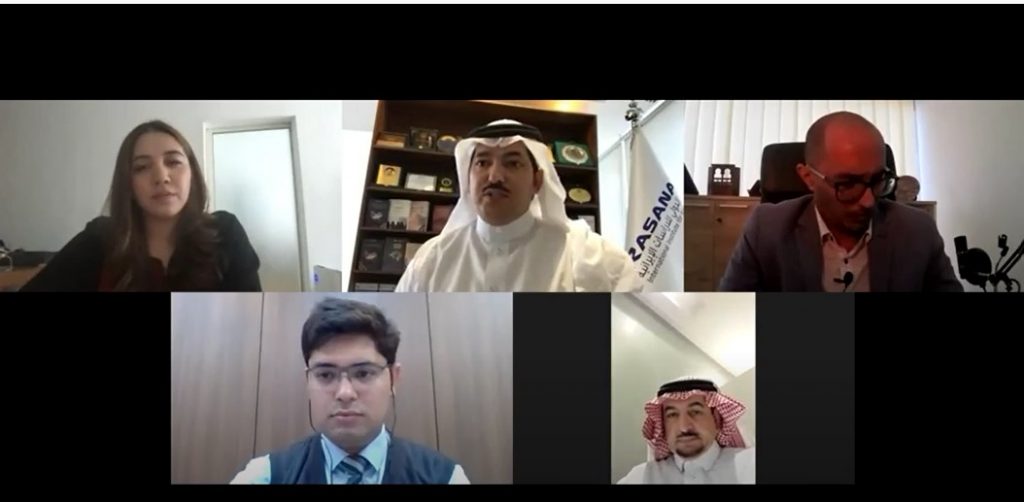On March 9, 2021, the International Institute for Iranian Studies (Rasanah) hosted a webinar entitled, “New Horizons: Saudi-Malaysian Relations.” The webinar was chaired by the President and Founder of Rasanah Dr. Mohammed Alsulami and moderated by Rizwan Rafi Togoo, a research intern at Rasanah. The speakers were Dr. Zayed al-Harthi, former Saudi cultural attaché to Malaysia, Dr. Mohammed Gharawi, a journalist and director of the Sama Center (for media studies) in Malaysia and Indonesia and Anis Huszainey, a researcher at the Institute of Strategic & International Studies (ISIS).
In his opening remarks, Dr. Alsulami thanked the panelists for their participation and highlighted that these policy discussions between think tanks represent a good start and only the beginning of Saudi-Malaysian collaboration. “We have organized this event while the Malaysian PM is on an official visit to Saudi Arabia. I think there will be lots of things [in regard to] the two countries’ cooperation,” Alsulami said. He added that the two countries enjoy great potential to enhance their bilateral relations and reach new levels whether in trade, tourism and other fields.
Rizwan Rafi Togoo commented on how this webinar was held at an important time as it coincided with the visit of Malaysian Prime Minister Muhyideen Yassin to Saudi Arabia.
Anis Huszainey elaborated on how Saudi Arabia, one of the powerhouses of the Muslim world, played a critical role in helping Malaysia develop its economy and infrastructure through the provision of financial aid — when Malaysia was newly established. When the fourth prime minister, Muhyiddin Yassin, came to power, Saudi-Malaysian relations took a different turn; he built on the legacy of his predecessors’ policy towards the Gulf, in particular Saudi Arabia, but he adopted a two-way economic approach to diversify the country’s economy and end the sole independence on trading with the United States and Europe. Saudi Arabia’s economic transformation on the other hand allowed Malaysia to enhance further their mutual economic relations. Detailing the development of bilateral economic relations, Huszainey stated that in 2008, Malaysia ranked 18th among the countries investing in Saudi Arabia. Furthermore, Saudi Arabia views Malaysia as an important strategic partner in regard to security, economic and cultural cooperation, said Huszainey.
She also highlighted the 2017 visit of King Salman to Malaysia for the first time where the two countries concluded a landmark agreement between Petroliam Nasional Berhad (PETRONAS) and Saudi Arabian Aramco.
Huszainey also discussed the potential for cooperation between the two countries in the tourism sector, hoping to expand cooperation in different areas including: science and tackling climate change, the development of smart cities such as NEOM. As Saudi Arabia prepares to open up to tourism, Malaysia would be keen to leverage its expertise in this field to share best practices.
Dr. Zayed al-Harthi paid tribute to the longstanding and rich relationship between the two Muslim countries. He spoke of the Saudi citizens originally from Malaysia who make up part of Saudi Arabia’s diverse community and enjoy equal rights like all other Saudi citizens. He praised the special foundation set up by Malaysia to take care of pilgrims and acknowledged the great number of Malaysian pilgrims who come to Saudi Arabia each year. In terms of educational exchange, Dr. Harthi stated that thousands of Saudi students study in Malaysia’s universities. Furthermore, the Saudi government has awarded thousands of scholarships in various fields to Malaysian students to study at top Saudi universities. He emphasized the need to widen cultural and educational cooperation in order to address any misunderstanding or misinformation in relation to the two countries. Dr. Harthi expressed confidence in the expansion of collaboration between the two countries as both Saudi Arabia and Malaysia share common goals and values.
Dr. Harthi underlined the significance of King Salman’s landmark visit to Malaysia in 2017, reflecting the deep-rooted relations between the two countries. During this historic visit, King Salman was awarded two honorary doctorates from a top Malaysian university. His visit furthered the development of political, cultural and economic relations between the two countries and enhanced efforts to jointly combat terrorism.
Mohammed Gharawi noted the high level of local media coverage the major visits between the two countries attracted starting from the visit of the late King Faisal bin Abdulaziz in 1970 to the visit of King Salman in 2017. He mentioned that Malaysia is ranked 101st globally in the 2020 World Press Freedom Index, yet the Malaysian media faces some restrictions and revoked laws on freedom of expression. Yet, there are still laws restricting media outlets such as the Printing Presses and Publications Act 1984. He highlighted the fact that Malaysian media outlets rely on quoting from international new agencies in conveying news about the Middle East to Malaysian people. He noted that the most intensive media coverage carried out by Malaysian media about Saudi Arabia was when King Salman visited the country in 2017. Prominent positive news on oil collaboration between the two countries received considerable attention from the Malaysian media in addition to the share of Malaysian pilgrims in the Haj; cultural cooperation, student exchange programs, Saudi support to Rohingya refugees, and the inauguration of the Global Center for Combating Extremist Ideology (GCCEI). However, negative media coverage lasted for a short time and stopped and news outlets have become more positive. Gharawi also recommended the establishment of a Saudi-Malaysian committee. He further proposed the launching of a joint Saudi-Malaysian media committee to deliver news on Saudi Arabia, and drew attention to the need to invest in media to tackle the stereotypical images about the two peoples.
In his closing remarks, Dr. Alsulami underlined the importance of such discussions and thanked the panelists once again for their invaluable contribution.
The full recording of the webinar is available here:

